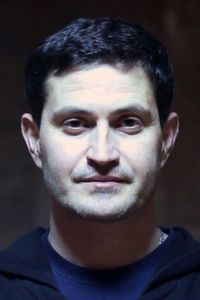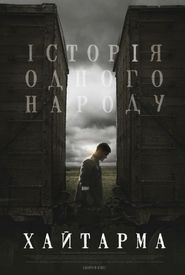Akhtem Shevketovych Seitablayev, a celebrated Ukrainian filmmaker, entered the world on December 11, 1972, in Yangiyo‘l, Uzbek SSR, amidst a Crimean Tatar family. His parents, who were forcibly relocated to Uzbekistan during the Stalinist era, instilled in him a sense of resilience and determination, which would later shape his life and work. As a child, Akhtem spent his formative years in the region, immersing himself in the local culture and developing a strong connection to his heritage. However, fate had other plans, and he was eventually reunited with his family in Crimea during the Perestroika era, a period of significant social and political change in the Soviet Union, in 1989.
Seitablayev's illustrious film career commenced in 1992, following his graduation from the prestigious Crimean Cultural Enlightenment School. Prior to his entry into the world of cinema, he honed his skills at the Simferopol State Crimean Tatar Theater, where he spent an impressive 12-year tenure from 1992 to 2004. During this period, he had the opportunity to direct a variety of plays, showcasing his versatility as a director. His repertoire included notable works by the renowned Russian author, Alexander Pushkin.
In 2005, Seitablayev made the transition to the Kyiv Academic Theatre of Drama and Comedy on the left-bank of Dnieper, where he continues to make a lasting impact on the world of theater.
Azerbaijani filmmaker, Seitablayev, marked the beginning of his cinematic journey with the direction of his debut film, Quartet for Two, in the year 2009. Subsequently, he went on to helm his second feature film, Haytarma, which was released in 2013 and delves into the remarkable true story of Amet-khan Sultan, a Crimean Tatar flying ace who earned the distinction of being a twice Hero of the Soviet Union. The film garnered widespread acclaim, with notable praise coming from the Kyiv Post, which described it as a "must-see for history enthusiasts."
Seitablayev's cinematic endeavors have garnered widespread acclaim throughout the erstwhile Soviet Union, yet concurrently, his films have been subject to scathing criticism and controversy. Notably, his vociferous opposition to the annexation of Crimea by the Russian Federation has been extensively documented, with his films chronicling the plight of prominent Crimean Tatars receiving widespread critical acclaim for their meticulous attention to historical accuracy and profound emotional resonance.
Seitablayev's cinematic journey reached new heights in 2017 with the release of Another's Prayer, a masterpiece that solidified his position as a prominent figure in Ukraine's film industry. Throughout his illustrious career, he has leveraged his influence to bring attention to the trials and tribulations of the Crimean Tatar people, and his films have been widely acclaimed for their exceptional storytelling and profound emotional impact.
Seitablayev's professional endeavors have not been exempt from controversy, as evident in 2013 when Vladimir Andreev, the Russian consul in Crimea, publicly criticized the film Haytarma, accusing it of manipulating historical facts and presenting NKVD officers involved in the forced deportation of Crimean Tatars in a more favorable light. Andreev's remarks sparked a massive backlash, ultimately leading to his resignation from his position.



















